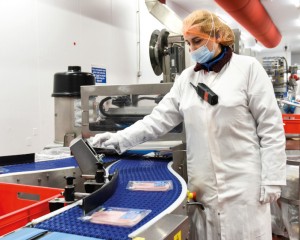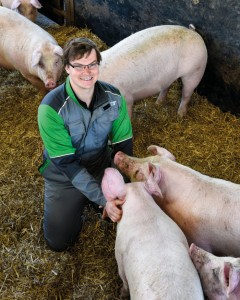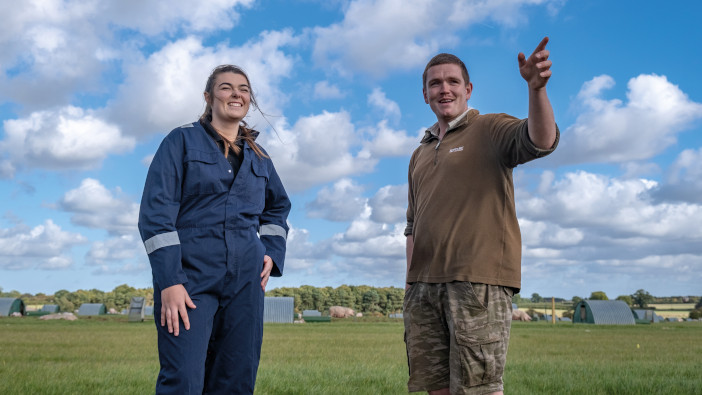Pilgrim’s UK, along with Co-op and Waitrose, has completed an industry-leading Human Rights Impact Assessment that it says will give unparalleled insight into the wellbeing of people across its integrated pork and independent lamb supply chains. It wants others to follow suit, human rights manager Andy York told Alistair Driver.
When it comes to highlighting sustainability and ethical production, the focus tends to be on animal welfare and environmental impact, particularly around carbon. But, increasingly, the treatment of people, and their human rights, is featuring in the conversation.
In the clearest demonstration of this yet, Pilgrim’s UK has teamed up with retail customers, Co-op and Waitrose, to complete a comprehensive Human Rights Impact Assessment (HRIA) of its integrated pork and lamb supply chains.
It was a major piece of work, carried out by ethical trade consultancy Impactt between October 2021 and February 2022, which happened to be a time when labour shortages were causing huge backlogs on pig farms, the impact of Covid was still being felt and input costs were rising.
It covers all parts of the chain, from pig and lamb producers and their staff to management and staff in Pilgrim’s pork plants, including those brought in from Asia, and those involved in warehouses and logistics – and even the international supply chains of its inputs and ingredients, such as spices.

Andy York, human rights manager at Pilgrim’s UK, who led on the activity, explained that, while this sort of exercise has been carried for other more straightforward commodities like coffee and sugar, this was first of its kind in an integrated livestock supply chain due to its scale and complexity.
Indeed, the HRIA report runs to nearly 100 pages, with detailed findings, backed up by action points for the company to mitigate or prevent or any negative impacts identified.
This was clearly much more than a PR exercise and something Pilgrim’s UK, and its retail partners took seriously. “It is a proper deep dive look into the entire supply chain. We wanted to a deeper understanding of how people are influenced by what we do and also how Co-op and Waitrose operate as well,” Mr York said. “It is about being as transparent as we possibly can be on our treatment of people and their human rights.”
He said visibility in this area is something retail customers are increasingly looking for, particularly those with connections in the EU, where due diligence measures are ‘coming down the line’.
“This is a way of businesses being able to prove they’ve taken a detailed look at human rights issues. Also, retailers don’t very often get a view that far down on how they are impacting workers in a supply chain,” Mr York added.
There could be another critical benefit, too, as the meat processing and farming industries struggle to attract staff due to, as the John Shropshire report points out (p14-16), a variety of factors, including reputational issues.
This sort of transparency can showcase the positives of working on farms or processing plants, admittedly not always the easiest task, and assure potential employees that their wellbeing is a consideration in companies’ minds – and that they can raise issues, if needed.
“The first thing this generation of graduates and young people ask about when they look at a business is sustainability. Obviously, for Pilgrim’s UK and BQP, the outdoor-bred story helps, and in trying to attract staff for plants, particularly British people, we want to show the meat industry is not as bad as people think,” Mr York added. “We’ve gone first with this, and we expect to see some benefits.”
What did the assessment show?

To carry out the HRIA, Impactt engaged a total of 127 people –
- 74 workers
- Nine pig farmers
- Four lamb farmers
- 18 internal head office teams from Pilgrim’s UK, Co-op, and Waitrose
- 12 management teams from Pilgrim’s UK sites
- Four representatives from
- four NGOs
- Six representatives from two recruitment agencies
Mr York explained that participants needed significant reassurances. “People associate the phrase ‘human rights’ with other countries, like China, but we are committed to raising workers’ rights here. We also had to reassure them that they weren’t going to be penalised if issues were found. It was anonymous – this was about us gathering information.”
The audits happened right in the middle of the pig industry’s biggest crisis – a time when the relationship between processors and farmers was very much in the spotlight, even if Pilgrim’s UK was not the main source of farmers’ ire among them.
The assessment concluded that, generally, the Pilgrim’s UK vertically integrated model, with 340 BQP pig farming ‘partners’, alongside 420 dedicated independent sheep farmers, supported its farmers.
For example, there was insignificant impact on farmers’ income during Covid-19 and no workers on the audited farms lost jobs as a result.
“Farmers were also pleased they had a cost of production model, which is supported by Co-op and Waitrose. It meant they received higher prices to cover additional costs and did not have to kill pigs on farm,” Mr York said.
Among the numerous other on-farm findings, the assessment highlighted ‘evidence of family working’ on pork and lamb farms, including young family members helping at peak times, and an absence of contracts for family workers.
This was described as a common industry-wide issue by Pilgrim’s UK, which is responding with Waitrose and Co-op by developing guidance on the topic, highlighting UK law regarding contracts for family workers and the safeguards in place for young workers.
Another finding was the excessive hours worked on farms, again, especially by family members, which had an impact on wage levels. Pilgrim’s UK also described this as an industry-wide issue and is investigating the reasons more deeply and developing guidance and training.
The HRIA found a ‘lack of consistency in the levels of awareness and training within farming businesses on health & safety’, which the company is seeking to address, and, unsurprisingly, mental health issues on farms. It is currently training its field staff and wider agricultural team in mental health support awareness.
The assessment found evidence of ‘gender discrimination’, a finding Mr York said Pilgrim’s UK disagreed with, citing the number of women with prominent roles on farms and within its agri team and BQP. It is, however, seeking more information on the subject and drafting guidance.
“One of the things that came out of it for me is that we need to start appreciating more what farmers do, and we also need to promote the vital role of women in farming,” he said.
Pork plants
 The company responded to the labour shortages by bringing in, to date, more than 250 workers from the Philippines, at a huge financial cost to the company, including travel and accommodation. The assessment followed their journey closely, ‘from the moment they signed on to when they arrived and beyond’, which provided unique visibility, Mr York added.
The company responded to the labour shortages by bringing in, to date, more than 250 workers from the Philippines, at a huge financial cost to the company, including travel and accommodation. The assessment followed their journey closely, ‘from the moment they signed on to when they arrived and beyond’, which provided unique visibility, Mr York added.
One action as a result has been to simplify contracts. “They didn’t make a lot of sense even if you spoke perfect English, so we have put them into plain English and also into lots of different languages,” he said.
The assessment sought to deliver clarity on recruitment fees, with extra checks now in place, and on the living wage.
Pilgrim’s UK is also addressing mental health concerns within its plants, including ensuring a comprehensive support system is in place, and with its retail partners, has developed and rolled out compulsory training on modern slavery for all supervisors and managers.
Health and safety is also covered, while Pilgrim’s UK will continue to roll out ‘Respect Training’ in response to workers who believed they were discriminated against due to their level of English.
Other key areas were worker representation and ensuring plant staff understand and have access to grievance mechanisms, with options now in 45 different languages and more channels made available.
Ongoing assessment
Some on farms and in plants will be sceptical about what it will all really mean for them, but Mr York was adamant that the process is about much more than producing a glossy report. “There have already been actions out of this and there will be more and, along with Waitrose and Co-op, we’ve committed to report back on progress annually. We want to move towards a fully transparent and ethical supply chain,” he said.
The company is keen to set a precedent for others.
Mr York added: “Our message is: Don’t be afraid of your supply chain. I would say to other businesses, if you know your supply chain and are comfortable and have nothing to hide, why not do this?”




